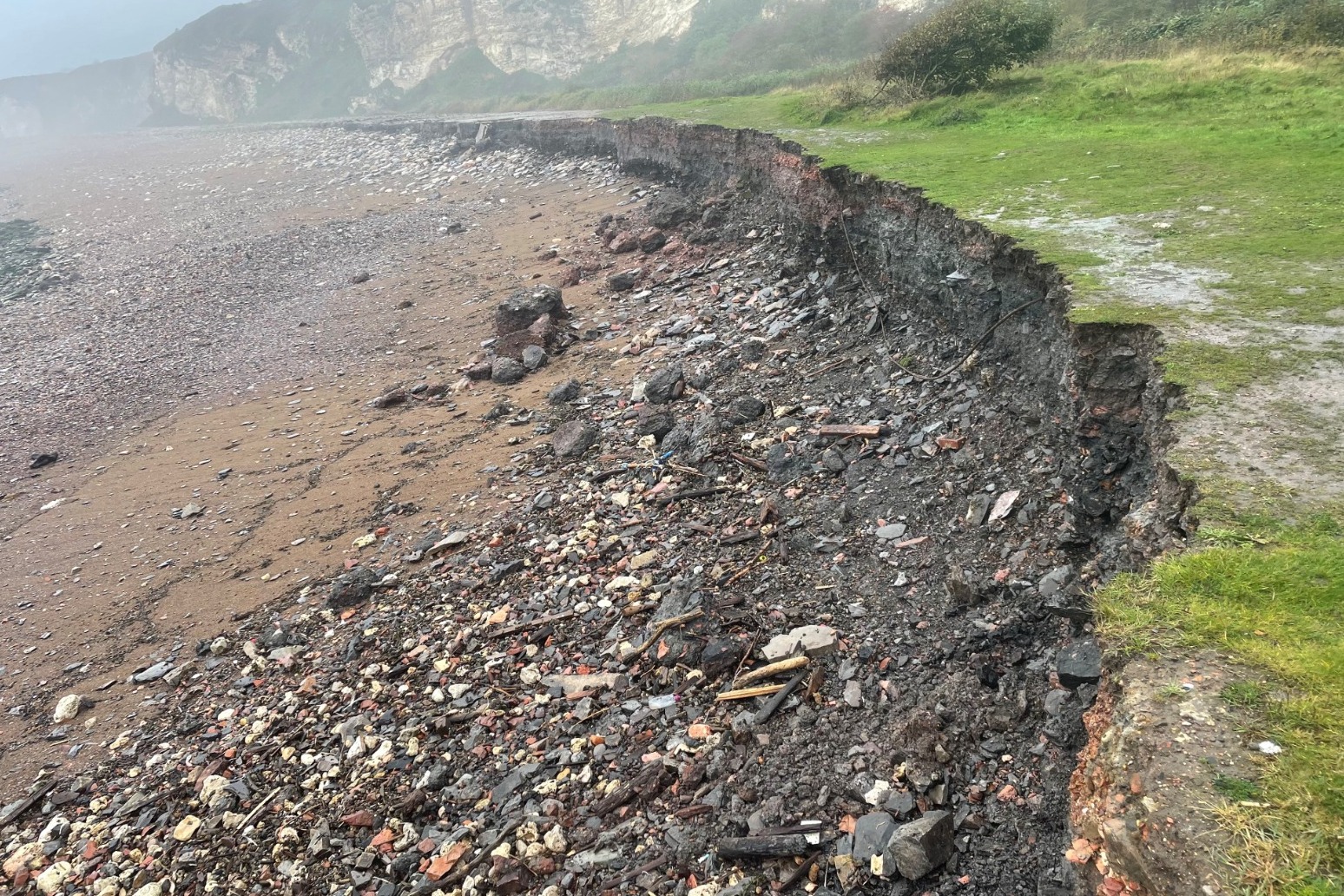
Storm Babet has already caused changes to Durham’s industrial coastline, experts have said.
Researchers from Newcastle University are bracing the elements to document how the surging seas have eroded the landscape.
They have already recorded waves washing away fragile and toxic coal waste deposits that sit just above the high-water mark, with even heavier seas expected.
At the peak of the coal industry in the North East, approximately 2.5 million tonnes of waste were deposited on Durham’s beaches annually.
Locations like Blast Beach, near Seaham, which featured as a backdrop in the film Alien 3, have seen significant spoil erosion since industrial tipping ceased.
Now, using drones to survey the beaches and map out the changes, a research team is working to measure the changes along the coastline, particularly in response to Storm Babet.
They have already found around one metre of erosion at Blast Beach as a result of the first high tide on Thursday morning.
Dr Seb Pitman, lecturer in physical geography, said: “We are approaching a point where the coal waste has almost entirely disappeared and this could lead to active erosion of the cliffs behind it in the coming decade.”
Storm Babet is likely to be particularly damaging, Dr Pitman said, because of its prolonged duration.
“What’s unusual with this storm is not necessarily how large the waves will be but for how long,” he said.
“We are expecting to see waves in excess of four metres high for around 72 hours.
“This equates to about six high tides, meaning the storm will have multiple opportunities to remove large parts of the coal platform on the beach.”
Published: by Radio NewsHub









